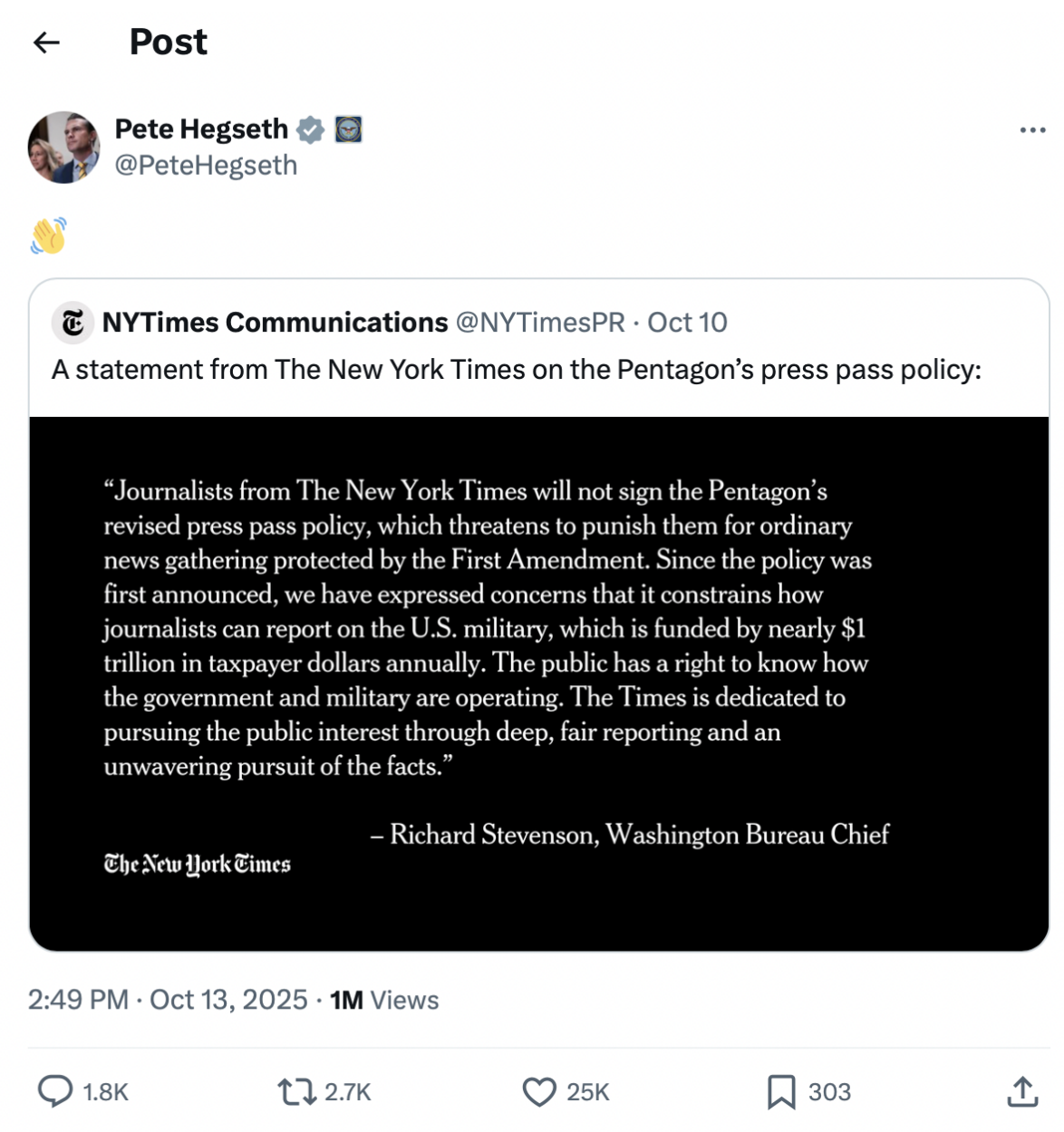Kyle Cave
Staff Writer
Secretary of Defense Pete Hegseth has unveiled a new press policy for the Pentagon. The policy states that journalists in the Pentagon can only cover what the Pentagon tells them to cover. Media outlets were given an ultimatum: sign the new policy or hand in your press pass.
In a rare moment of solidarity across media outlets, every single major news outlet refused to sign the new rules. These networks include CBS, NBC, CNN, ABC and Fox News.
Major newspapers also refused to sign, including The New York Times, The Washington Post, Reuters, and The Associated Press. Only one outlet signed these new press rules, and that was OAN (One America News), a right-wing outlet.
Media outlets were one hundred percent in their right to do this. As journalists, our job is to hold the powerful accountable at every turn. Whether that be as high as the president of the United States, or as low as a local politician. These new press rules violate that very standard of journalism.
Free press, when it comes to government, has led to some of the biggest stories in journalism. A big example is the story of “The Pentagon Papers.”
“The Pentagon Papers” were the big story that exposed how the American government, specifically how the Kennedy and Johnson administrations, lied to Congress and were rapidly expanding operations in Vietnam.

Daniel Ellsberg was a military analyst at the RAND Corporation who secretly obtained “The Pentagon Papers” and gave it to Times reporter Neil Sheehan. In June 1971, some of the papers were officially published in The New York Times.
This was not without consequence; the Nixon administration tried to use its executive power to stop the Times from publishing the papers. This went all the way to The Supreme Court in “New York Times Co. V. United States.” The Court ruled that the publication had a 1st Amendment right to publish the papers and resume publication.
Journalism has been a core aspect of government accountability. The administration for the past ten months has claimed it is “The most transparent in history,” but has done everything in their power in silence, censor and even attack the media.
In response to media outlets saying they will not be signing the new press requirements, Hegseth tweeted and replied to every outlet with a handwaving emoji. Essentially saying goodbye to the outlets that don’t accept the new terms, which is essentially everyone.
Journalists will continue to do their work regardless of any type of restrictions put on them. Even with the press doing what they do, the media environment we are currently in is still disturbing
Anytime you see top officials trying to limit or censor the media, something has to be going on behind the scenes that has not come to light. There is not much good to come out of censorship, but one potential good thing that can come out of this entire situation is the media being harder on censorship and digging deep into the potential reason why this occurred. Media solidarity is rare, but in moments where journalism is threatened, it’s crucial.

